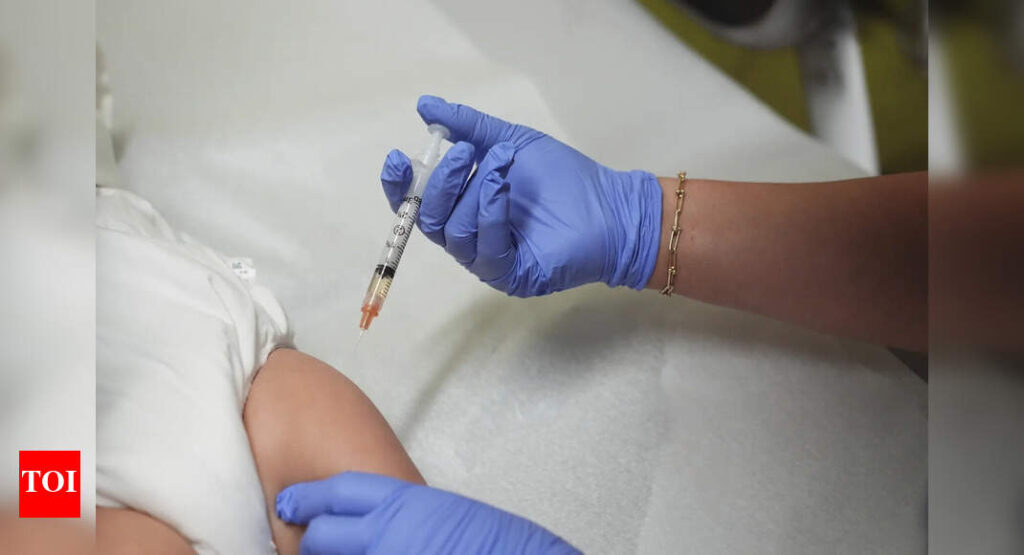
Pneumococcal infections represent a significant public health challenge, especially for adults and individuals with underlying health conditions. Vaccination emerges as a vital preventive strategy against pneumococcal disease, which can lead to severe complications such as meningitis and bloodstream infections.
When vaccinations are mentioned, they are often associated with childhood immunization. However, the importance of vaccines extends across all age groups. Pneumococcal infections, in particular, frequently affect adults and are largely preventable through vaccination. This makes pneumococcal disease one of the most significant preventable public health threats globally, with vaccines playing a crucial role in safeguarding families against its severe consequences.
The Threat of Pneumococcal Disease
Pneumococcal disease is caused by the Streptococcus pneumoniae bacteria and can result in ear infections, bloodstream infections, and meningitis. These bacteria spread easily from person to person through coughing or sneezing. If not treated promptly, pneumococcal disease can be life-threatening.
While young children are particularly vulnerable, older adults and those with existing health conditions such as interstitial lung disease (ILD), chronic obstructive pulmonary disease (COPD), asthma, diabetes, heart disease, or weakened immunity face a heightened risk of infection. The disease’s ability to rapidly escalate from mild respiratory symptoms to severe complications requiring hospitalization is particularly concerning.
Global and Regional Impact
The World Health Organization’s 2008 report highlighted that Asia bears the highest burden of pneumonia, with the Indian subcontinent contributing significantly to this disease burden. Furthermore, an Indian perspective study revealed that community-acquired pneumonia (CAP) is the second-most common cause of death from infectious diseases in the region. Research indicates that adults over 50 years in India face a disproportionately high risk of pneumococcal infections.
Dr. Agam Vora, General Secretary for the Association of Physicians of India, stated, “Pneumococcal vaccination has emerged as the cornerstone of protection against a spectrum of life-threatening infections caused by Streptococcus pneumoniae, including meningitis, sepsis, and lung infections.”
Vaccination as a Preventive Measure
Current evidence from multiple Indian medical associations and clinical practice guidelines establishes clear vaccination recommendations across all age groups. From infants receiving primary series immunization to adults requiring protection against invasive disease, timely immunization is critical to reducing the risk of severe illness, hospitalization, and mortality caused by pneumococcal disease.
The Association of Physicians of India’s updated Adult Immunization Guidelines emphasize that vaccines are not just for the elderly or those with existing health conditions but are equally important for healthy adults. Vaccination helps maintain overall health and safeguards against many common infections. Prevention is not only better than cure but also simpler, safer, and far more cost-effective.
“Vaccination with PCVs (pneumococcal conjugate vaccine) is considered one of the most effective public health tools for reducing the burden of pneumococcal disease,” Dr. Vora added.
Practical Steps for Families
Vaccination offers families a shield of long-term protection. With multiple strains of pneumococcal bacteria circulating, the risk of contracting the disease more than once remains high. This makes vaccination a smart preventive step for families. Alongside vaccination, there are simple everyday practices that can reduce exposure and strengthen immunity:
- Practice good hygiene: Regular handwashing and covering the mouth when sneezing or coughing are essential to prevent the spread of infections.
- Protect those at risk: Wearing a mask if you have respiratory symptoms or are in high-risk settings, such as visiting someone in a hospital, is crucial.
- Build immunity: Good nutrition, adequate sleep, regular physical activity, and quitting smoking significantly boost the immune system.
- Use antibiotics wisely: Avoid self-medicating, as unnecessary antibiotic use can make infections harder to treat.
While pneumococcal disease is serious, it can be prevented through vaccination. Vaccination, combined with healthy lifestyle choices, ensures that families remain protected and resilient. The next-generation pneumococcal conjugate vaccine for adults is now available in India, providing broader serotype coverage compared to previous vaccines.
Following vaccination, the immune system develops specific antibodies capable of recognizing and neutralizing pneumococcal bacteria before they can establish infections. It is important to consult with healthcare providers to choose the right vaccine for individual needs.
As the fight against pneumococcal disease continues, vaccination remains a cornerstone of public health strategy, offering a vital layer of protection for individuals and communities alike.





